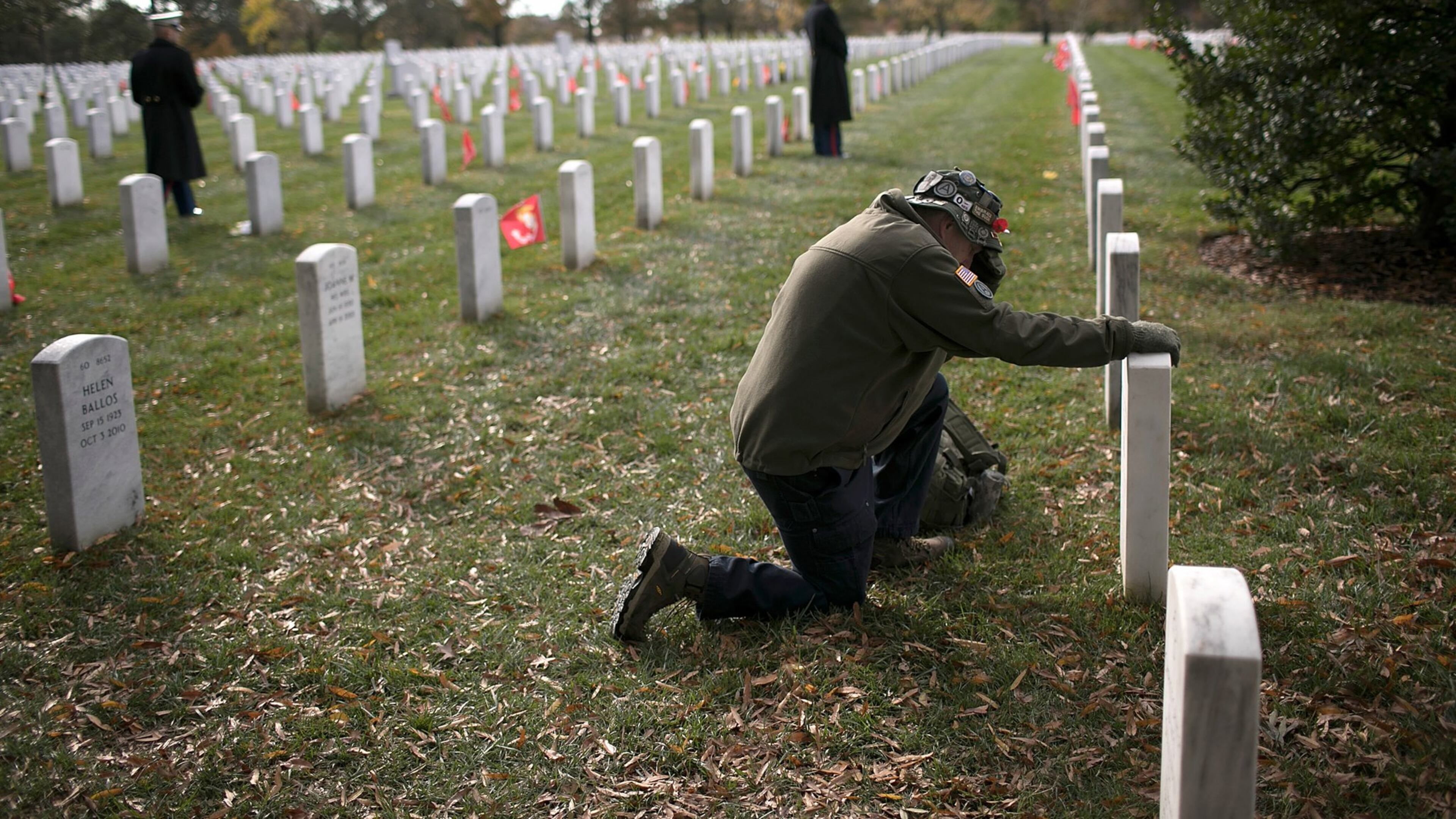Opinion: Thank vets, and get to know them

This past summer, while a group of veterans wobbled and spun in kayaks, I stood on the shore of Fontana Lake in western North Carolina with my notebook and camera. The TV guy had set up his camera nearby, and within an hour he’d be gone, having asked quick questions that, to me, seemed obvious and shallow.
As a writer, I knew I should be interviewing the veterans, maybe getting photos, but all I could think was: I can’t do it. I don’t have the right.
The trip was a partnership between Semper Fi Fund and the Nantahala Outdoor Center, and I'd been hired to put a human face on healing in the outdoors, but it was the humanity, I think, that scared me. Finally, I gave up on finding photo ops and slid into a kayak. With a few quick strokes, I was cutting the water and paddling with them.
Often, as we practiced our strokes, someone would steady themselves on my boat and ask why I was there. I’d expected to find them closed off and resistant, tired of being the subject of stories like mine, but their hunger to talk struck me.
Having seen too many movies and Wounded Warrior ads, I was prejudiced into thinking that everyone would have a prosthetic limb or would be battling PTSD, but the problem that many of them kept mentioning was something I’d never considered: social isolation.
The first to admit to feeling lonely was James, who had stood mostly silent as the others joked. He told me that this trip marked the one-year anniversary of his mother’s death. He’d lived with her after being discharged, and after she passed, he’d stayed in the house and avoided everyone.
Everyone? Yes. Pretty much.
Several other participants told me that these trips were a necessity, not so much for the sport but because they got to be around other people who’ve had similar experiences. That was what I heard over and over again: the value of talking to others who understood you.
Still, the question nagged: Doesn’t everyone get lonely sometimes? I mean, when you’re dealing with things like Traumatic Brain Injury, missing limbs, or PTSD, is loneliness really such a big deal?
Actually, yes. For as little as it's talked about, loneliness has been a known threat to veterans for over two decades. A study in the early 1990s identified loneliness as a major contributing factor for reactivating PTSD symptoms in WWII veterans. By the late 1990s, a study of users of a veterans affairs medical center crisis intervention hotline identified loneliness, in addition to alcoholism and unemployment, as a top trigger associated with suicide attempts.
And even for the less extreme cases, loneliness remains one of the strongest correlates with depression. A 2017 study published in the journal Military Behavioral Health found that veterans who are lonely may be at greater risk for "distorted thinking," a thought process that makes them vulnerable to "intense bouts of stress and inner turmoil, and subsequent experiences of depression."
Imagine having served your country, often in a team-based environment, and then returning home to find no one you can talk to. Many of us take for granted that friend who listens to us when we’re criticizing ourselves, but if you’re alone, then that inner turmoil becomes the only voice you hear. Every day it’s just you talking to yourself, exaggerating negative situations, with no one to pull you out of your head. Stress causes depression, depression more stress, on and on.
After talking with the group, I realized how easy it is to dismiss the isolated. Deeply lonely people tend to just fade into the background, a perfect camouflage, and others usually ignore them.
And why not? It’s so much easier to ignore than to engage.
That’s why I started the trip standing on shore, watching the others paddle and laugh. I wasn’t scared of the water; I was scared of them, of saying the wrong thing. At least I knew better than to ask those typical civilian questions: Were you in combat? Did you kill anyone? (Yes, people do ask things like that, and more than you might think, according to Semper Fi Fund’s leaders).
In the end, I took the chance and got in the water with them. It wasn’t much, but I understood them a little better, and maybe for a little while, they felt less alone.
I hope that, this Veterans Day holiday weekend, you’ll take that same chance. Don’t just say thank you. Take the time to get to know a veteran. One day is not enough, but for your first time in the water, it’s a start.


